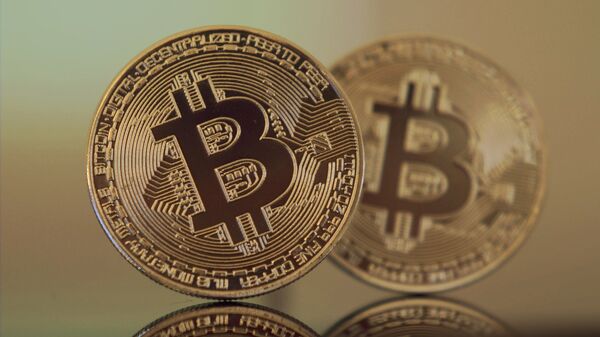The UK and EU were the latest major governments to recognize the influence of Bitcoin by their announcement of intent on December 4 to regulate the trade in crypto-currencies, principally Bitcoin, and to remove the anonymity of traders, citing concerns the cryptocurrency has become an avenue for money-laundering and terrorist financing.
Bitcoin continued its unprecedented rise December 5, hitting $11,900 with a market capitalization value of $330 billion. The astronomical ascent in value has invited comparisons to the Dot-Com bubble of the early 2000s and even with the 'Tulip Mania' of the early 17th century, the earliest known 'modern' stock-market crash.
READ MORE: UK Clamps Down on Bitcoin in Fight Against Money-Laundering and Tax-Evasion
The relationship between bitcoin's price and Google searches for "bitcoin" pic.twitter.com/6FXBaKyvsf
— Elementus (@elementus_io) November 26, 2017
Adam Jason, Head of Business Development at Coinsilium, an investment firm specializing in the blockchain technology upon which Bitcoin operates told Sputnik:
"Bitcoin is essentially the culmination of decades of computer science and cryptography experts trying to develop a form of digital cash. Governments appreciate this is a new technology that can actually enable them to run their financial systems more efficiently and at a cheaper cost. That technology presents a lot more benefits which virtually everyone is interested in. Bitcoin seems to be so far the version immune to attack, it's been going for 10 years and it's still surviving."
Iran's Cyberspace Authority Says It Welcomes Bitcoin, If Regulated https://t.co/kpsRXNMURw pic.twitter.com/thf4KDdB09
— CoinDesk (@coindesk) November 27, 2017
Iran
Iran has become the most recent major country to announce its intention to legalize the regulated trade in Bitcoin with the Islamic Republic's Minister for Information and Communication Technologies announced November 14 his country's government was researching the necessary infrastructure to support Bitcoin. The country has long wanted to find a way of circumnavigating US-led western sanctions on its financial system as well as limiting the use of the US dollar in its international trade.
"Often what they're [governments] looking to do is set in place infrastructure to allow them to harness this new technology so they're not left out in the dark while everyone else is developing what could be the next 'internet," Mr. Jason added.
Russia
The Russian Government has taken a more neutral stance on the technology. The country's Communications Minister Nikolai Nikiforov announced to the media November 21 Russia will 'never' legalize Bitcoin, but hinted the government was interested in harnessing the blockchain technology behind it.
READ MORE: Possible Russian Bitcoin Ban Could Start Domino Effect for Other Countries
China
China has been particularly wary of the development, having banned the trade in digital currencies within any of its jurisdictions, despite accounting over 90 percent of such exchanges globally until that point. Beijing has become increasingly wary of speculative bubbles that may threaten the stability of its financial system.
Closing China's Bitcoin Exchanges Was the Right Move, Says PBoC Official: The vice governor of the People's Bank of China has said that regulators took the right decision in banning ICOs and closing cryptocurrency exchanges. https://t.co/FICpB85sAm #Regulation pic.twitter.com/1IVk5IGAXW
— BitTrail (@RoccoDallas) December 4, 2017


